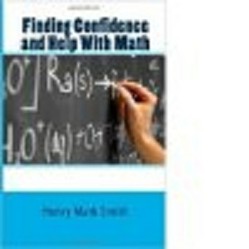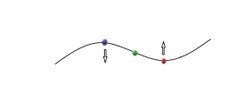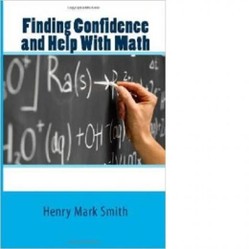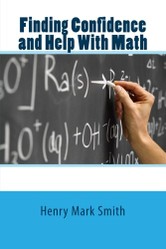There are several ways to improve one’s study skills in mathematics. Below are those I consider important.
First, mathematics is different. Studying mathematics like one studies history will not work. Mathematics first must be thought through and understood, but then must be practiced. Well, to stop here would be problematic. Practice requires feedback, so practice the problems that have answers provided. Many teachers do not understand this and assign the problems without answers in the back of the book. So, the student works a problem, gets it wrong, and has no clue the problem is wrong. Repetition of this process reinforces the wrong technique. Knowing the problem was worked wrong, seeking information on how to correct the problem, and learning from one’s mistakes is important. Practice where answers can be checked.
Another stumbling block is lack of confidence, too often brought on by lack of success. Having a positive attitude is important, and the book goes into how a student might build confidence in mathematic. Simply put, success in a practice test after applying sufficient practice should make the student confident that the problems on the test can be just as skillfully handled.
One thing that is too infrequently emphasized is that complicated problems often utilize one or two concepts already mastered with just one added step. There is no need to memorize an entire process, simply understand the added step, why it works, and what to choose in getting there.
Another sticky point is application problems, which is what educators now call word problems. Here, looking for certain words can translate into addition, subtraction, multiplication, division, or equality. But, even deeper are the ways the words are ordered or certain other words are included that imply parentheses.
Finally, a discussion on the use of a calculator should eliminate many careless and understanding the calculations errors.




 Multivariable Calculus: Gradient, Divergence, and Curl18 days ago
Multivariable Calculus: Gradient, Divergence, and Curl18 days ago
 UAPs, Formerly UFOs, If They Are Real How Can We Explain Their Arrival to Earth?19 days ago
UAPs, Formerly UFOs, If They Are Real How Can We Explain Their Arrival to Earth?19 days ago
 Polar Coordinate System21 days ago
Polar Coordinate System21 days ago
 Aurora Can Disrupt Electrical Devices And Even the Grid?22 days ago
Aurora Can Disrupt Electrical Devices And Even the Grid?22 days ago



Comments
The problem with the pandemic is it caused online classes to become commonplace. They serve some who can learn independently, but they are not for everyone. Math is especially difficult for many without guidance. It also presents issues with testing, for example, if a student is to develop a skill it many be improper to use a calculator, but monitoring a student sitting in front of a computer is difficult. I had a strict rule that no outside contact was allowed, used a service to monitor the student via their computer camera, but could not see if the student went to Google or had an email or chat. The type of test I used recorded when the student was at the test, and any other action was recorded as stopping the test. That included reading incoming messages. If they did not get back withing about 2 seconds their grade dropped for test rule violation. Online is difficult, and too many people are allowing cheating because it is difficult to stop.
Some people say that the pandemic shutdown particularly stranded students in their math problems.
Was that indeed how things went locally, regionally, nationally for math-class students?
Many people are. I am a college professor who teaches math and saw what my students go through.
I am one of those that was very intimidated by math as a child, and as an adult, still count on my fingers sometimes :-)